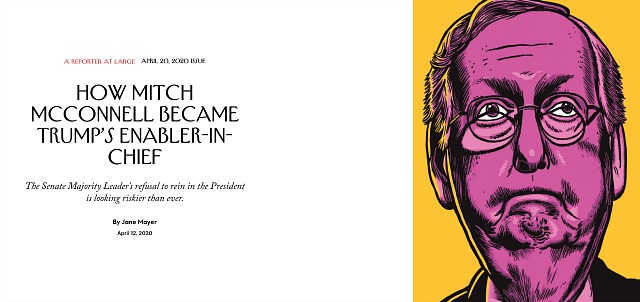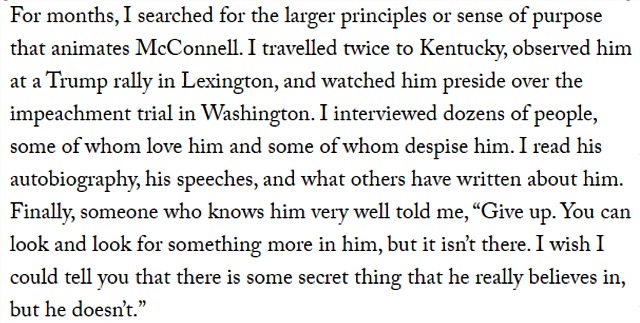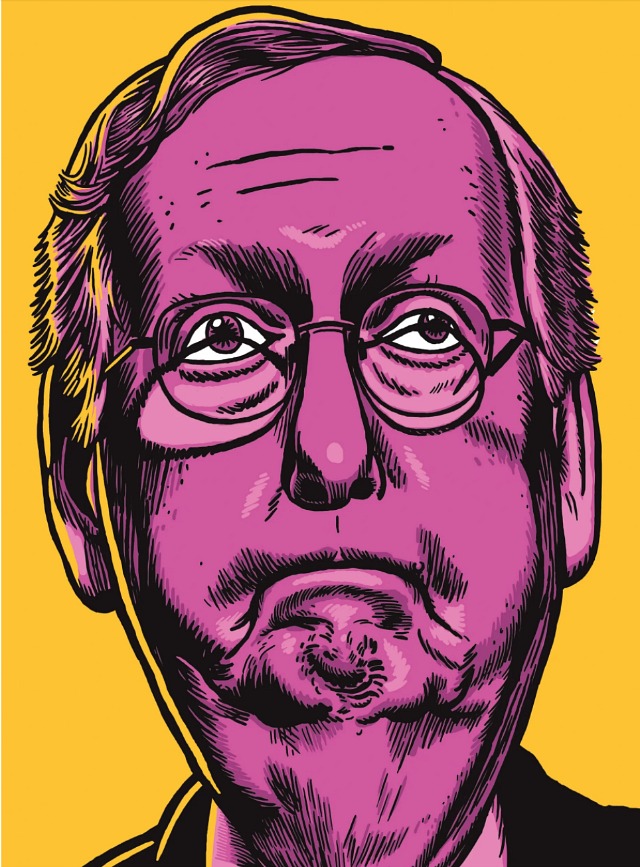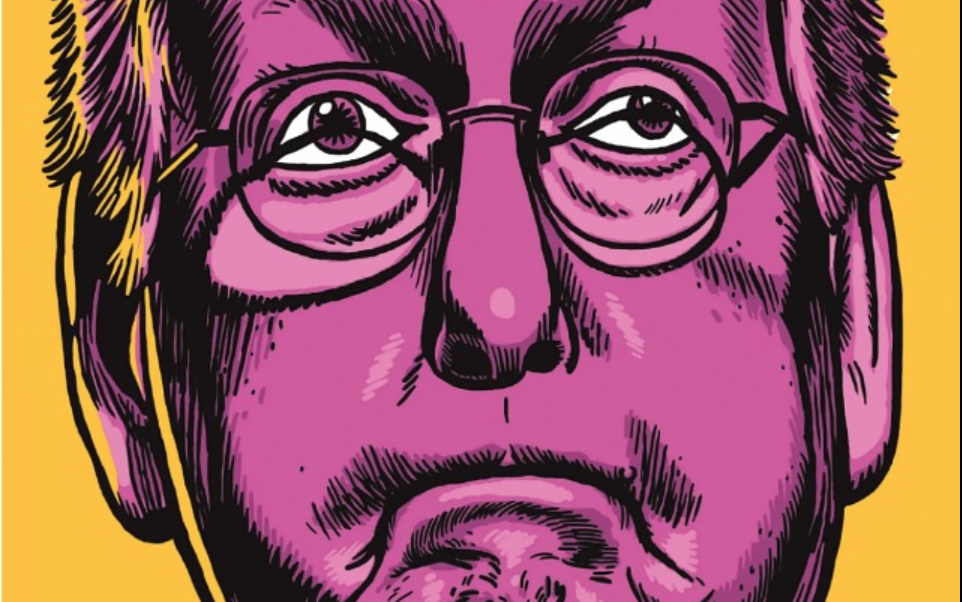The differences between the internals (political allegiances, character, guiding philosophy, ethics) of Senate Majority Leader Mitch McConnell and ’50s-era Senate Majority Leader (and then Vice-President and U.S. President) Lyndon B. Johnson are stark.
During his mid ’50s to mid ’60s heyday Johnson was a tough and wily politician who pushed through progressive legislation.
Since he became Majority Leader in early ’15 McConnell has done nothing of significance except (a) block Barack Obama’s nomination of Merrick Garland to the Supreme Court, (b) block pretty much all legislation that doesn’t serve corporate interests and (c) serve the agenda of an Oval Office sociopath.
For most of his Congressional political career Johnson hid his liberal-moderate colors while being fairly unscrupulous in his pursuit of naked power.
McConnell, on the other hand, has shown himself to be an absolute reptile — a hollow, soulless operator without beliefs, as Jane Mayer’s 4.12 New Yorker profile (“How Mitch McConnell Became Trump’s Enabler-in-Chief“) points out in elaborate detail.


Every day McConnell coughs up hairballs of cynicism and serves the agenda of the most dangerous president in the history of this nation.
But I have to say (and it gives me no pleasure to do so) that while reading Mayer’s piece I was reminded of descriptions of Johnson in Dave Grubin‘s American Experience doc “LBJ” — descriptions offered by former aides and friends during Johnson’s Senate Majority days.
Howard Schuman, U.S. Senate Aide: “Well, one doesn’t know whether he was a liberal or a reactionary. Probably he was neither. He probably was just an extraordinarily skillful parliamentarian who was an opportunist and who sensed the wind and then went in that direction.”
Ronnie Dugger, LBJ Biographer: “…the absolutely unqualified opportunism of a successful politician of this particular mold.”
John Connally, LBJ Campaign Aide, LBJ Advisor: “He had no interests, really, except politics. That was his whole life. He was totally committed to it. He never read anything except politics. He didn’t care about any sports. He didn’t read any books. I don’t know of one book he read in all the years I’ve known him.”
Joseph Rauh, Jr., Americans for Democratic Action: “My opinion was that he was destroying the Democratic Party and not doing his job. His job was the opposition to the Eisenhower Administration and he didn’t do it. They were just playing hanky-panky with each other and there was really no Democratic opposition.”


